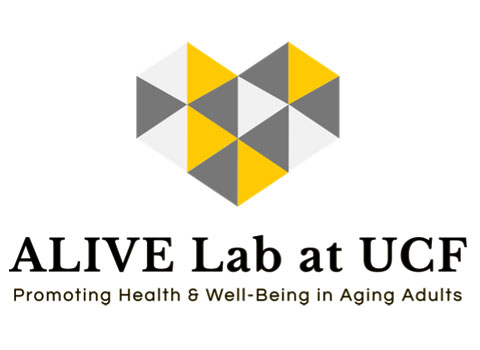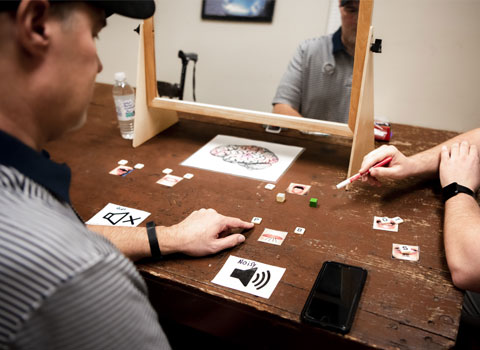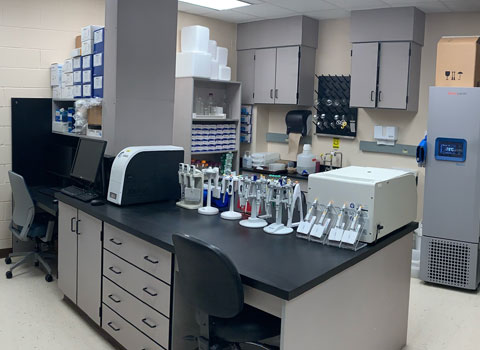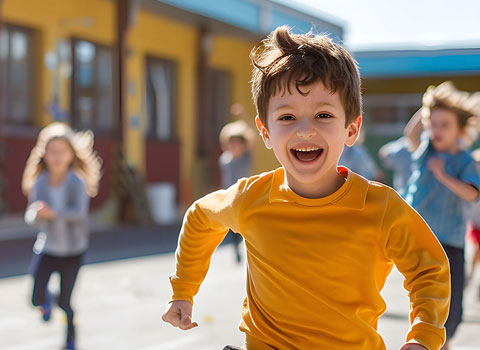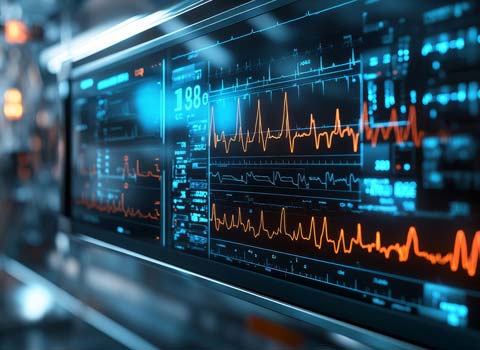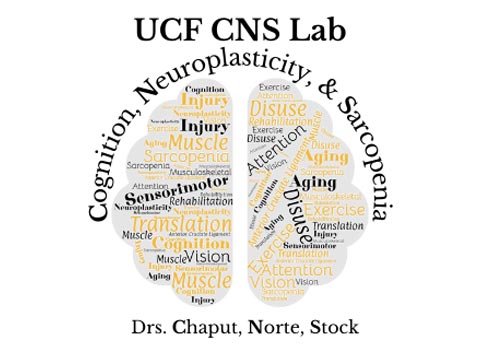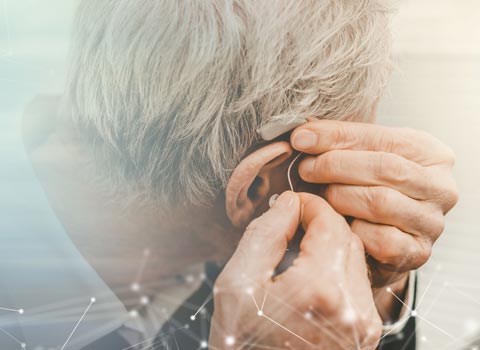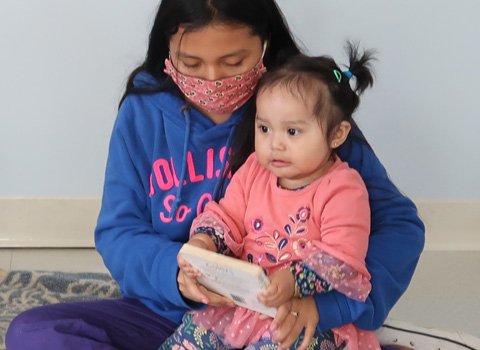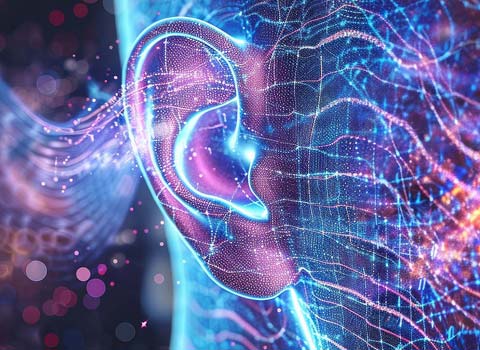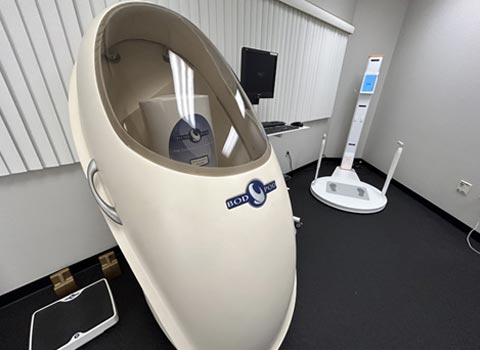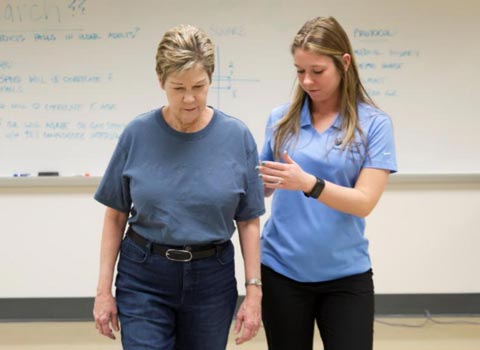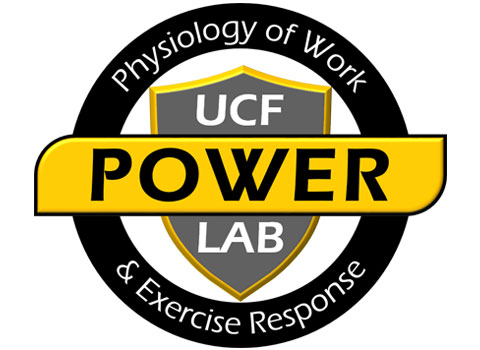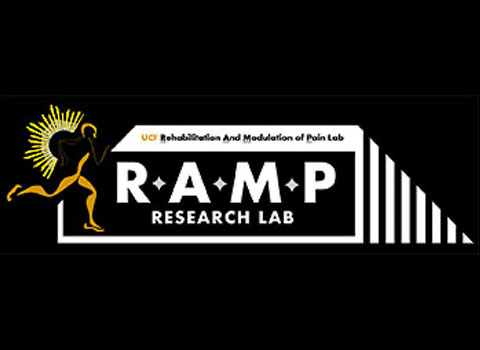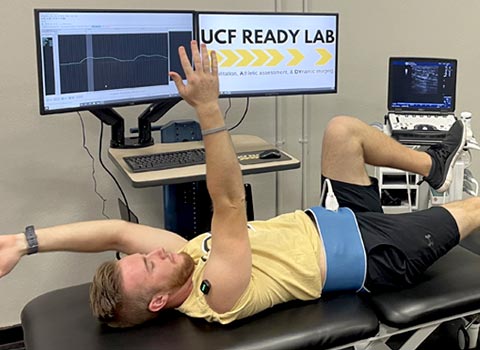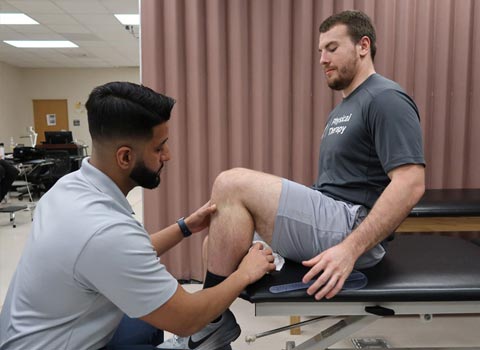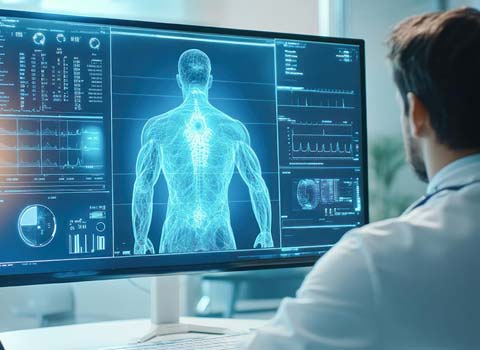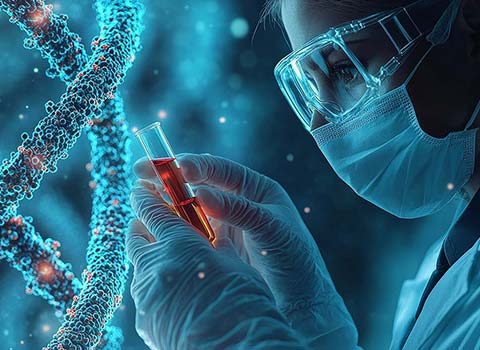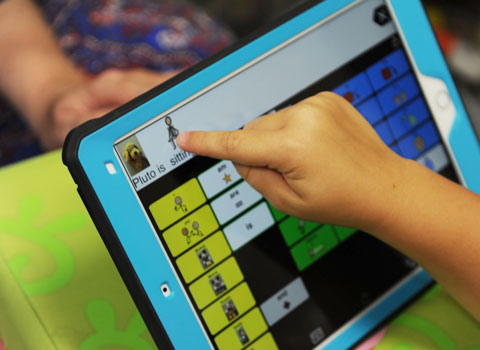
AAC Research to Practice Lab Collaborative
The AAC Research to Practice Lab Collaborative is a collection of research labs focused on translating research findings to practice and improving clinical outcomes for individuals with complex communication needs who require the use of augmentative and alternative communication (AAC) to meet some or all of their communication needs. The labs and their respective Principal Investigators are as follows:
Aging & Longevity Initiatives for Vitality & Enrichment (ALIVE) Lab
Our mission is to optimize the successful aging for all individuals through vitality and enrichment initiatives that facilitate engagement and participation in purposeful activities. These initiatives include research, rehabilitation services, and educational opportunities for both the individual and the healthcare workforce.
Aphasia and Related Conditions Research Lab
Members of the ARC Research Lab at University of Central Florida conduct research to better understand the complex processing of speech and language and its breakdown in individuals with aphasia and apraxia of speech, develop new and explore effective treatment approaches, and examine variables that impact treatment success.
Cellular Exercise Physiology Lab
The primary focus of the Cellular Exercise Physiology Laboratory (CEPL) is to examine how the immune system, in conjunction inflammatory mediators that direct immune responses, influence recovery and adaptation following acute and chronic exercise interventions. The CEPL also examines how nutrition and dietary supplements impact these responses. Located in Biological Sciences building, the 400 sq. ft. CEPL houses state-of-the-art equipment used in the analysis of various blood constituents.
Childhood Obesity Research and Education (CORE) Group
The Childhood Obesity Research and Education (CORE) group, led by Associate Professor Keith Brazendale in the Department of Health Sciences, is dedicated to advancing scientific understanding and practical solutions to prevent and treat childhood obesity. CORE’s work centers on identifying and modifying obesogenic behaviors—such as physical activity, sleep, and sedentary behavior—across both structured (in‑school) and less structured (out‑of‑school and summer) environments.
Clinical Applications of Rest and Exercise (CARE) Lab
The Clinical Applications for Rest and Exercise (CARE) Lab applies physiological, behavioral, and clinical approaches for the prevention and management of chronic diseases, through the integration of sleep and exercise physiology. Our team of certified Clinical Exercise Physiologists develop interventions that target modifiable lifestyle behaviors to reduce disease risk, manage symptoms, and improve quality of life across diverse populations. By bridging research and practice, the CARE Lab supports both clinical and community health through applied research, education, and collaboration.
Cognition, Neuroplasticity, & Sarcopenia (CNS) Lab
The CNS Lab conducts high-quality interdisciplinary clinical research among diverse populations of all ages. We investigate the neurophysiological origins of lower extremity musculoskeletal injuries, with a focus on developing therapeutic interventions to enrich orthopedic rehabilitation. Our research also encompasses age-related physiological changes, disuse muscle atrophy, and the effects of resistance training on musculoskeletal health and recovery. By integrating these areas of study, we aim to advance orthopedic care, promote active lifestyles, and enhance recovery processes for individuals across different age groups and conditions.
Communication Technologies Research Center
The Communication Technologies Research Center has three focal areas including voice and upper airway disorders, auditory neuroscience, and hearing technologies. Our voice research seeks to better understand the bases for dysphonia, the relation of perception to underlying physiology, and to develop improved assessment methods to facilitate diagnosis and treatment. Essential for voicing, our work also focuses on breath support for healthy voicing and airflow during voicing. We have a particular interest in affordable and accessible methods for evaluating vital capacity and airflow while voicing. The auditory neuroscience section focuses on understanding the neural bases of auditory perception in real-world complex acoustic environments and how that perception changes with age, cognitive function, hearing loss, and variable environmental conditions.
Early Language & Literacy Intervention & Education Lab
The Early Language & Literacy Intervention & Education (ELLIE) lab is focused on building the capacity of individuals working with young children experiencing language impairments and those considered at-risk. We develop and evaluated the successful implementation of evidence-based practices to support young children’s language and emergent literacy skills in naturalistic settings.
Examining Patient-Provider Language and Interactions in Healthcare (EXPLAIN) Lab
The Examining Patient-Provider Language and Interactions in Healthcare (EXPLAIN) Lab is dedicated to advancing health literacy and patient-provider communication through research, education, and interdisciplinary collaboration. Our mission is to improve healthcare accessibility, comprehension, and outcomes by studying and enhancing communication strategies for individuals with communication disorders (CSD) and those who experience challenges in accessing understanding and using health information.
Exercise Physiology Intervention & Collaboration (EPIC) Lab
The Exercise Physiology Intervention & Collaboration (EPIC) Laboratory is a dedicated space utilized to administer exercise interventions of various modality and houses cutting edge technologies for the assessment of neurocognitive, neuromuscular and functional aspects of exercise performance. The facility is utilized for student and faculty led research projects and to teach lab sections that complement a number of kinesiology courses.
IMOVE Lab
The Innovative Mobility Initiative (IMOVE) Lab conducts research that informs clinical services for individuals with mobility impairments. Through programs and community partnerships, the IMOVE lab extends its research into practice.
The components of the lab include:
- UCF Go Baby Go! : providing innovative accessible, and practical options to improve the lives of individuals with limited mobility, including the Knights on the Go Cafe
- Keeping Them on Their Feet: a balance and gait disorders clinic
- Grow and Play: an intergenerational physical activity program
- Challenge Me!: interventions aimed to improve cognitive, physical, and psychological well-being of individuals with dementia
- Assistive Device Technology
Physiology of Work & Exercise Response (POWER) Lab
The mission of the UCF POWER Laboratory is to assess the physiological response to exercise modalities and nutritional interventions aiming to enhance health, fitness and athletic performance. Through the application of exercise physiology and the analysis of human movement, we assist in addressing the contemporary questions of healthcare providers, fitness professionals, and sport coaches to aid in decision-making and strategic development. The POWER Laboratory has the capability to measure both physical performance and the metabolic response to field- and laboratory-based exercise protocols.
Rehabilitation and Modulation of Pain (RAMP) Lab
The UCF RAMP Lab aims to advance the rehabilitation of patients with musculoskeletal pain by researching how treatments provided by physical therapists reduce pain and biopsychosocial factors associated with this response. Chronic pain is highly prevalent and disabling, impacting one in five individuals in the United States.
Rehabilitation, Athletic assessment, & Dynamic Imaging (READY) Lab
The READY Lab aims to advance neuromuscular assessment, musculoskeletal imaging, and rehabilitation methods for the lumbopelvic-hip complex, while improving the understanding and delivery of patient care for active individuals with chronic musculoskeletal injury. The READY Lab analyzes spatial, mechanical, and electrical changes in muscle activity during static, dynamic, and sport-specific tasks using innovative applications of ultrasound imaging and surface electromyography. The use of biofeedback programming for ultrasound imaging, electromyography, and inertial measurement units to improve patient rehabilitation and recovery is integral to the mission of the READY Laboratory.
Spine & Mobility (SAM) Lab
Through an interdisciplinary approach, the Spine & Mobility Laboratory focuses on clinically-relevant research that improves clinical outcomes and identifies the most accurate and efficient approach to treating various spinal conditions. The lab serves as a site for research investigations to answer clinical questions and evaluate examination and treatment for spinal conditions.
Strategies for Therapeutic Rehabilitation and Optimization of Neuromuscular Growth (STRONG) Laboratory
The primary focus of the UCF Strategies for Therapeutic Rehabilitation and Optimization of Neuromuscular Growth (STRONG) Laboratory is to identify exercise and/or rehabilitation strategies that elicit the most robust physiological responses among men and women with a particular emphasis on neuromuscular and cardiovascular function. The laboratory examines various interventions to determine the applicability of exercise, devices, and/or external stimuli to promote or maintain human function in asymptomatic and clinical populations. The laboratory is currently applying Blood Flow Restriction exercise as a rehabilitative strategy to help restore neuromuscular and muscle function among people with multiple sclerosis. The laboratory is also evaluating the utility of Blood Flow Restriction as a countermeasure to offset the effects of prolonged spaceflight on cardiovascular function.
Testicular Cancer Research Collaborative
The Testicular Cancer Research Collaborative (TCRC) is dedicated to advancing knowledge and improving outcomes in testicular cancer and men’s health. Our work spans clinical outcomes research, survivorship studies, and psychosocial investigations, with a focus on addressing the full continuum of care from early detection to long-term quality of life. We strive to integrate patient perspectives into research design, train the next generation of health researchers, and translate findings into meaningful improvements in care and awareness.
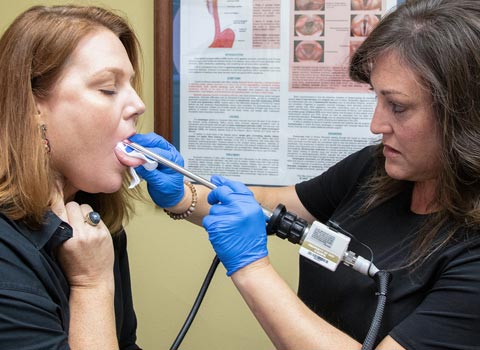
Voice Lab
The voice lab provides laryngeal imaging of the vocal folds and upper airway, acoustic, aerodynamic analysis of laryngeal function as well as respiratory and pulmonary assessment. We treat a wide variety of disorders from professional voices, to neurologic disorders (i.e. parkinson’s disease, ALS, MS, MG, stroke), aging voice issues, athletes (who develop breathing disorders), chronic cough, transgender/voice affirmation services, corporate voice, laryngeal cancer and head & neck cancer issues.

